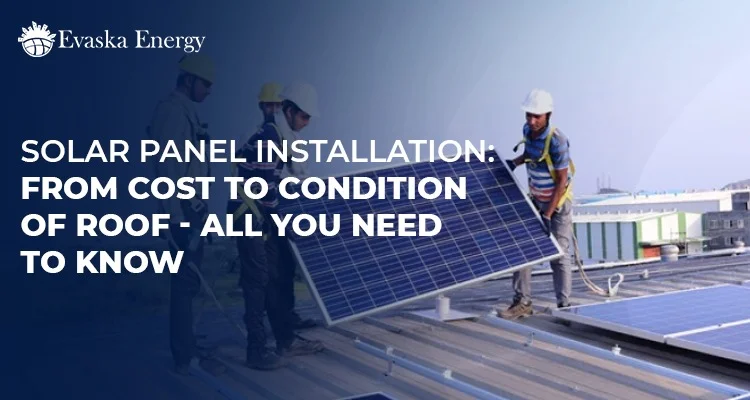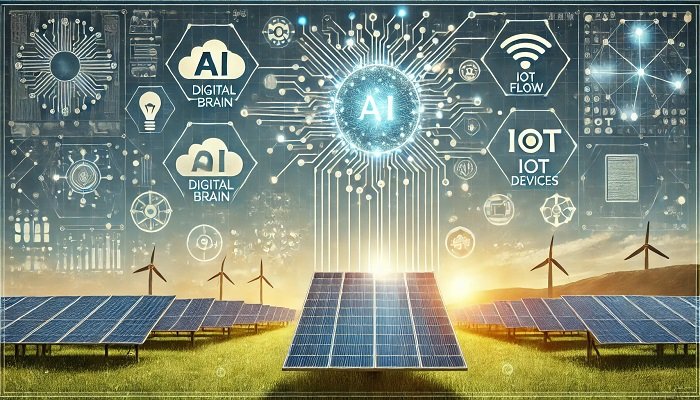Solar Panel Installation: From Cost to Condition of Roof – All You need to know
Solar panels could be complex to comprehend as the information regarding solar energy is pretty widespread and vague on the internet. So here is all the information you’ll need for solar panel installation.
Solar system installation requires a lot of technical knowledge as well as experience. It can be installed for multiple purposes for your residence or workstation. If you are paying high electricity bills or suffering from frequent power cuts or outages in your area, you are eligible for installation of solar plant. The two types of solar plant are On grid and Off grid solar power plant.
There are few important things to consider while solar panel installation:
- Type of Roof: We need to look at the roof where the solar panels need to be installed. There are different types of roof available. The most common we come across is the RCC roof and Tin shed roofs. Cost of installation varies on the type of roof the installation is being carried out. We need to know the life of roof and load bearing capacity of roof before the installation of solar power plants. The strength of the roof needs to checked before installation as it will be able to withstand the necessary drilling, mounting of structure, installing solar panels and making civil blocks. As this is a complete 25 years solution which will be there with the user till he has his house with him. Once, the roof type is known solar system designing can be easily done with installation.
- Direction of Roof: It is advisable that the roof where the solar panel is going to be installed needs to be shadow free. To bring out the maximum efficiency from the solar panels it is better to install them facing the south direction. Solar panels generate the maximum output when faced directly towards the south direction with proper inclination. As the light from the sun falls on the solar panels, they tend to start generating electricity which is later converted through the inverter and used to run our appliances. If the direction of the solar panels is not as appropriate as needed, it will tend to generate less electricity than usual.
- Type of Structure: Solar mounting structure is the base of the complete solar power system. It is that part of solar plant which holds and supports the complete solar panels. So we need to understand carefully that solar structure needs to be robust and strong. The different type of solar mounting structure are Hot Dip Galvanized Iron and Pre Galvanized Iron which are used in RCC rooftop and ground mounted projects. The other one is Aluminum structure used in Tin shed sheets in factories, industries and commercial buildings. There are different types of solar structures being offered in the market, out of which Hot dip Galvanized Iron is the most reliable one as it has the longest life compared to others.
- Type of Solar System: Here the main concern is whether you require back up or not and is there any kind of power cut issue in your locality. If any of these issue is not prevalent at your area then you can easily choose for on grid solar plant which will help you save on your electricity bills. Off grid solar system is the most popular type of solar system when you need to store the excess energy and use them when needed. On grid solar system works in collaboration with the electricity grid, if there is no light from the grid it won’t generate any electricity. Whereas, in off grid solar system it is totally different. They store the electricity in batteries and when needed. Both the solar system have their uniqueness, advantages and disadvantages.
- Solar Panel Technology: Polycrystalline is one of the oldest technology in the solar industry and has the basic cell efficiency when compared to the latest technologies. The advanced solar panel technologies are the monocrystalline and mono perc half cut solar panels which come with high cell technology and also require less space for solar panel installation than the traditional polycrystalline solar panels. They also work better when there is cloudy, rainy or low light days as their cells are quite advanced when compared to others.
- Warranties of Solar Equipment’s: Once, you decide on which solar panel technology you need to rely on, you need to check the warranty that is being offered by the manufacturer for the same. Generally, it is advisable to choose solar panels which come with minimum 25 years of performance warranty. The other important equipment in the solar system is the inverter which should be chosen with a minimum warranty of 10 years. Warranty on the solar equipment’s gives the end user a trust that their investment is safe.
- Cost of Solar Installation: The cost will vary depending upon the solar panels, inverter, mounting structure, cables you use in the project. Solar panel is the most important component in the solar power plant which comprises of the maximum budget in the cost. Home solar system cost will vary anywhere from Rs. 55,000 to 60,000 per KW depending upon the equipment’s you choose in them. It can vary from location to location, site conditions and client requirements.
Choosing a reliable solar panel installation company is very important which is well versed with complete process of solar installation. You can keep in mind these points and list down your preferred choice.








